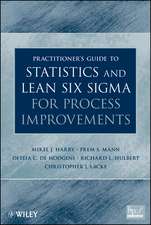Reinventing the Package Holiday Business: New information and communication technologies
Cu Karsten Kärcherde Limba Germană Paperback – mai 1997
Preț: 422.70 lei
Nou
Puncte Express: 634
Preț estimativ în valută:
80.88€ • 84.68$ • 66.93£
80.88€ • 84.68$ • 66.93£
Carte tipărită la comandă
Livrare economică 07-21 aprilie
Preluare comenzi: 021 569.72.76
Specificații
ISBN-13: 9783824403387
ISBN-10: 3824403382
Pagini: 376
Ilustrații: XVII, 352 S. 191 Abb.
Greutate: 0.45 kg
Ediția:1997
Editura: Deutscher Universitätsverlag
Colecția Deutscher Universitätsverlag
Locul publicării:Wiesbaden, Germany
ISBN-10: 3824403382
Pagini: 376
Ilustrații: XVII, 352 S. 191 Abb.
Greutate: 0.45 kg
Ediția:1997
Editura: Deutscher Universitätsverlag
Colecția Deutscher Universitätsverlag
Locul publicării:Wiesbaden, Germany
Public țintă
ResearchCuprins
1. Introduction.- 1.1 Main Hypothesis and Objectives.- 1.2 Organisation of Thesis.- 1.3 The Travel and Tourism Industry.- 1.4 The Holiday Business and the Distribution Chain for Holidays.- 1.5 The Package Holiday Business and Outgoing Tourism.- 1.6 New ICTs in the Travel and Tourism Industry and Tour Operator Systems.- 2. Related Literature.- 2.1 Introduction.- 2.2 Literature on New ICTs in the Travel and Tourism Industry.- 2.3 Institutions and Organisations.- 2.4 The Study of New ICTs and Inter-Organisational Relationships.- 2.5 Klein’s Research Framework.- 3. Theoretical Framework.- 3.1 Introduction.- 3.2 A Discussion of Positioning Models.- 3.3 Levels of Analysis and a Strategic Positioning Model for Tour Operators.- 3.4 Application of the Theoretical Framework.- 3.5 An Extended Theoretical Framework.- 4. Methodology.- 4.1 Introduction to the Scientific Enquiry.- 4.2 Philosophies of Science.- 4.3 Methodological Approaches and Methods.- 4.4 Theoretical Framework.- 4.5 The Structure of the Tour Operator Business in Britain and Germany.- 4.6 Sampling and Survey Methods.- 5. Reasons for the Development of New System Strategies.- 5.1 Introduction.- 5.2 Level 5 Impacts.- 5.3 Level 4 Impacts.- 5.4 Level 3 Impacts.- 5.5 Level 2 Impacts.- 5.6 Level 1 Impacts.- 6. New System Strategies of Tour Operators.- 6.1 Introduction and Summary.- 6.2 Level 1 System Strategies: New Tour Operator Systems.- 6.3 Level 2 System Strategies: Corporate Tour Operator Networks.- 6.4 Level 3 System Strategies: Technology Initiatives.- 6.5 Level 4 System Strategies: The Linking of Systems within the Package Holiday Sector.- 6.6 Level 5 System Strategies: The Linking of Systems within the Industry.- 7. Consequences of the New System Strategies for the Structure of the Package Holiday Business.- 7.1Introduction.- 7.2 Level 1 Consequences.- 7.3 Level 2 Consequences.- 7.4 Level 3 Consequences.- 7.5 Level 4 Consequences.- 7.6 LevelS Consequences.- 8. Research Conclusions and Recommendations for Further Research.- 8.1 Research Summary and Conclusions.- 8.2 Recommendations for Further Research into the Package Holiday Business.- 8.3 Implications of the Theoretical Framework for the Study of Other Sectors and Industries.- 8.4 Final Comments.- Appendices.- Appendix I. Consumer Systems for Travel and Tourism Information and/or Reservations and Bookings in Britain and Germany.- Appendix 2. SITA and the Four Global Distribution Systems (GDSs).- Appendix 3. National Travel and Tourism Reservation Systems in Britain and Germany.- Appendix 4. IOSs in the Travel and Tourism Industry.- Appendix 5. Notes on the Empirical Survey.- Appendix 6. English Interview Structure.- Appendix 7. German Interview Structure.- Appendix 8. Major Tour Operator Associations in Britain and Germany.- Appendix 9. Main Tour Operators in Britain.- Appendix 10. Main Tour Operators in Germany.- Appendix 11. Business Travel Agent Sector.- Appendix 12. Additional Travel and Tourism Data.
Notă biografică
Dr. Karsten Kärcher studierte Informatik und Wirtschaftswissenschaften in Kaiserslautern und Operational Research an der University of Strathclyde in Glasgow, Schottland. Mit der hier angezeigten Arbeit promovierte er an der Strrathclyde Business School in Glasgow und an der Hochschule St. Gallen.
Textul de pe ultima copertă
Threatened by disintermediation and the emergence of new information and communication technologies in the travel and tourism industry, tour operators are being forced to reinvent their business activities. The author shows how major European tour operators are developing and implementing new information and communication technology strategies as a response to these threats, thus securing their strategic position in the package holiday business. This research gives a detailed insight into the tour operator sector, particularly in Britain and Germany. Moreover, a theoretical framework is developed and proposed, largely based on industrial organisation and new institutional economics literature, providing a useful methodology for the study of a sector or industry.





